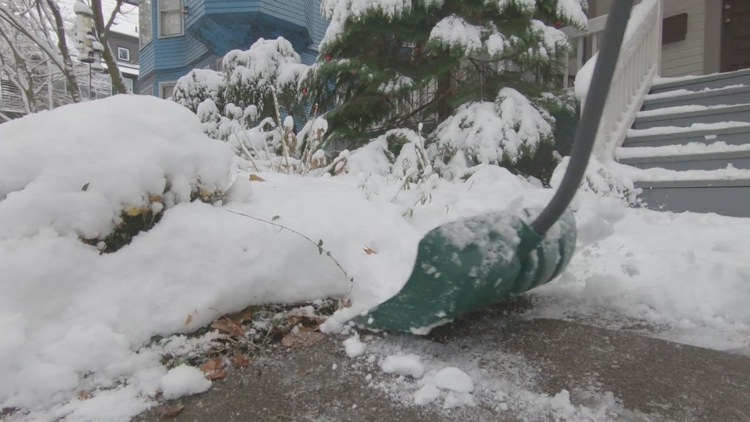
The California Air Resources Board (CARB) announced this month that it will use enforcement discretion for the first greenhouse gas (GHG) emission reports due in 2026 to allow regulated businesses (doing business in California with annual revenue of over $1 billion) to report on GHG metrics using older data. CARB is also seeking public comment (due February 14, 2025) on the implementation of the GHG reporting requirements and those related to the disclosure of climate-related financial risks. Background As we have previously discussed , California enacted the Climate Corporate Data Accountability Act (CCDAA) in 2023, which generally requires entities with annual revenues over $1 billion and that do business in California to annually report their Scope 1 and 2 GHG emissions starting in 2026, and Scope 3 GHG emissions starting in 2027.
The law is estimated to cover about 5,300 entities. CARB must issue regulations implementing the CCDAA by July 1, 2025, which will include establishing a deadline in 2026 for the first emission reports to be submitted covering the reporting entity’s prior fiscal year. California also enacted the Climate-Related Financial Risk Act (CRFRA) in 2023.

The CRFRA generally requires companies (except insurance firms) that do business in California and have gross annual revenues exceeding $500 million to biennially report on their climate-related financial risks starting in 2026 and to post the information to their websites. The CFRFA is estimated to apply to more than 10,000 companies. Enforcement Discretion On December 5, CARB issued a notice indicating that it will exercise its enforcement discretion for companies submitting their first GHG reports under the CCDAA.
The notice provides that for the first GHG report due in 2026, reporting entities may submit Scope 1 and Scope 2 emissions from the reporting entity’s prior fiscal year, which can be based on information the entity already possesses or was collecting as of December 5. CARB’s enforcement discretion is contingent on entities demonstrating good-faith efforts to comply with the requirements of the law. CARB is expected to provide additional details on reporting requirements for subsequent years as part of its forthcoming rulemaking.
Public Comment The CCDAA and CRFRA leave many questions unanswered for regulated entities. CARB’s December 16 solicitation of public comment and information from stakeholders is the first opportunity for the regulated community to attempt to get answers to those unanswered questions. CARB’s list of questions for public comment covers several topics, including the following.
Applicability: Including how CARB should define companies that “do[] business in California,” whether certain types of entities should be included, how reporting entities should be identified, and how reporting requirements should apply to parent/subsidiary companies. Standards: Including how CARB can ensure that regulations address California-specific needs while aligning with evolving international standards, how CARB should develop standards that fit with existing federal or other rules, and what reporting methods companies should be able to use. Data reporting requirements: Including what factors impact the costs of compliance for companies, how CARB should estimate costs and fiscal impact, and whether CARB should use a non-profit or private company for reporting services.
CCDAA-specific questions: Including whether CARB should standardize or limit flexibilities in reporting, what options for assurance or third-party verification exist and should be utilized, and how voluntary emissions reporting schemes should inform CARB’s approach, including considerations of timeline and software. CRFRA-specific questions: Including what the timeframe for reporting should be, how reporting should be standardized, whether to require advance disclosures for new filers, and what information about trends in current climate-related risk reporting exists. The deadline for comments is February 14, 2025.
Comments may be submitted to the Corporate Climate Data Reporting and Financial Risk Programs Comment Docket here . The CCDAA and CRFRA have also faced legal challenges. Business groups sued California in January 2024 seeking to enjoin the laws on constitutional grounds.
Last month, the US District Court for the Central District of California denied the groups’ motion for summary judgment. The litigation is ongoing, but the laws are likely to take effect before the lawsuit is resolved. Companies subject to these laws should continue to prepare for compliance with California’s climate-related reporting and disclosure obligations, like preserving any previously collected Scope 1 and 2 emissions data and maintaining current data collection efforts.
They should also monitor developments with CARB’s rulemaking process and ongoing legal challenges. Members of the firm’s Environmental and Environmental, Social & Governance (ESG) teams are monitoring the CCDAA and CRFRA and have been advising clients on the applicability of compliance with these laws. Stay tuned for future developments.
We also regularly monitor state law and administrative activity with broad implications to the regulated community and advise clients on understanding the risks and benefits posed by an increased focus on emerging ESG standards at the corporate level. Listen to this article.















